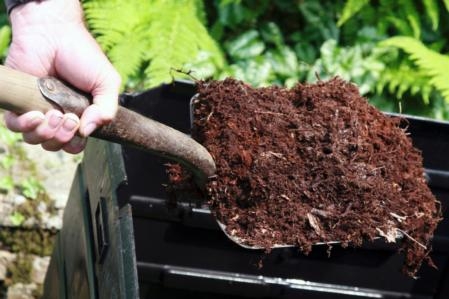- Author: Chris M. Webb
On Friday, April 22 from 8 a.m. to noon Oleg Daugovish will host Fumigants and fumigant alternatives, an educational outreach event. Both regulatory and research updates will be featured.
Scheduled topics include:
- New permit and fumigation requirements
- Soil Fumigation Federal Labeling
- California Strawberry Commission update on regulatory issues pertaining to the industry
- Alternative fumigants and emission reduction technologies
- Anaerobic soil disinfestation in Ventura County
- Evaluation of sustainable strawberry production systems for California
- Combinations of steam with solarization or mustard meal in Macrophomina phaseolina infested buffer zone
- CSC-sponsored research on raised bed trough substrate
Continuing education credits (including laws and regulations) have been requested from DPR. Additional details can be found here. There is no cost to attend.
If you require special arrangements, translation into Spanish or have further questions, please contact Oleg Daugovish at (805) 645-1454 or by email.
- Author: Chris M. Webb
Composting is a great green practice. Through the composting process waste can be recycled into a rich soil amendment.
This natural amendment is highly beneficial to plant growth, as it slowly releases needed nutrients over time.
In addition to the direct benefit to plants, compost helps reduce urban runoff and even conserves water. How is this possible? Adding compost to soil reduces runoff volume by improving water holding capacity and water retention while increasing water infiltration.
To learn more, including how to get started composting your waste, please see UCCE’s Composting Green Sheet or UC ANR’s Composting Is Good for Your Garden and the Environment, which is available in English and Spanish.

- Author: Chris M. Webb
Well structured soil and proper irrigation are vital components to growing healthy vegetable plants. UCCE’s Soil and Water Management of Vegetable Gardens brochure provides detailed information in a compact format.
Learn how to improve soil quality, when to fertilize vegetable plants, and how to efficiently irrigate your garden.
This free, downloadable resource can be found by clicking here for English and here for Spanish.
Due to a family emergency the March 26th Saturday at the Farm event has been cancelled. “Beefriending Your Local Bees” presented by Anna Howell, MS has been rescheduled for Saturday, April 2, 2011 from 10:00 a.m. to 11:30 a.m.
- Author: Chris M. Webb
This year’s strawberry irrigation field day will be held at Sammis ranch on February 18 from 8:00 to 11 am. This program will be in English with simultaneous translation into Spanish. There is no cost to attend.
Scheduled topics include:
- Establishment of large scale reduced irrigation study
- Water use/application and salinity measurements and results
- Plant performance in drip-only and reduced sprinkler systems
- New conditional waiver for irrigated land
- Practices to reduce water, sediment and pesticide movement from the field
- Resources available for growers to comply with the new conditional waiver
Continuous education credits have been requested from DPR. Additional information can be found here.
To insure your participation, or if you have questions, please contact Oleg Daugovish at UCCE: (805) 645-1454 or at odaugovish@ucdavis.edu.
- Author: Chris M. Webb
To apply pesticides legally, maintenance gardeners must pass and keep current a Qualified Applicator Certificate (QAC) in the Maintenance Gardener Category (Q) through the California Department of Pesticide Regulation (DPR). The DPR certificate and licensing programs are in place to ensure that those applying pesticides professionally know how to do so in a safe and responsible manner.
To help maintenance gardeners prepare for the exam, the UC ANR Integrated Pest Management Program (IPM) has put together study resources, most of which can be downloaded for free. Resources include knowledge expectations, study guide, online training course and workbook. All resources are available in English and Spanish and can be found here.
Additional UC IPM pesticide information, including resources for other applicators and home gardeners, can be found here.



